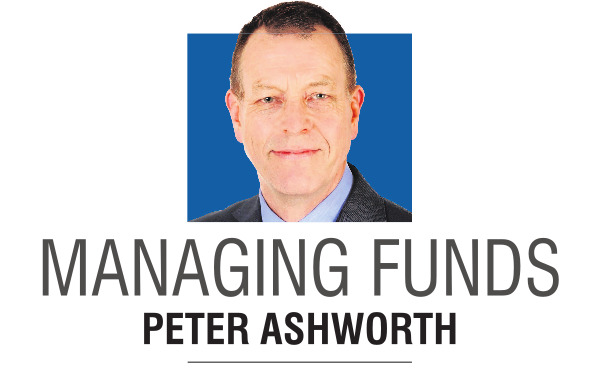
For most of us, the initial understanding of the role that our lawyer or accountant plays in our lives is quite narrow.
It is only when we are faced with a significant or more complex life event that we come to understand the true value they can add.

As a financial adviser, the general perception is that we give investment advice and, although that is true, it overlooks the important contextual advice which supports the investment recommendations.
It is the provision of contextual advice which helps clients negotiate the legislative, familial and emotional landscape that accompanies many investment decisions.
Examples of situations where a high degree of contextual advice is needed include: the sale of a long-standing family business, transition to retirement, a separation, diagnosis of a serious medical condition or a parent being placed in rest-home care.
From an advisory perspective, this is some of the most valuable and rewarding work that I do.
Over recent months I have had a number of requests to develop an investment strategy for an aged parent who has been placed in care. It is a good example because the situation is legislatively complex and people often end up accepting a less-than-ideal outcome, through a lack of advice.
It is not the role of this column to give specific advice, but as this is an issue being faced by an increasing number of New Zealanders, I thought that listing some of the key issues might be helpful.
Who has the power to act? You need to ensure that the ability for someone to make decisions on your behalf (or your parent’s behalf) is set up well in advance. An enduring power of attorney (EPoA) is the main mechanism by which this can be achieved. We must always be mindful of the potential for elder abuse, so the creation of these important documents should only occur after seeking legal advice. This is an example of where a degree of encouragement to pre-plan, and your adviser working closely with a lawyer, can make a significant difference.
What is your situation in relation to the residential care subsidy? In my view we are fortunate to have the residential care subsidy benefit, but it does come with quite complex rules and ongoing reporting obligations. You need to know what the threshold is for your current situation and how this might change over time.
Some assets and income are excluded from the calculation when your application for the residential care subsidy is being considered. It is important to know which assets will be counted and what potential income sources may also need to be tracked.
Are you a good record keeper? When applying for the subsidy, through the Ministry of Social Development (MSD), you will be required to provide historic information about all assets and any transactions relating to the transfer of property to other people or entities. You need to understand what is permissible in the period preceding an application.
If you are the beneficiary of a trust, what does it mean when applying for the residential care subsidy? Although any blanket exemption in relation to assets held in trust no longer applies, where certain criteria have been met through time, it is possible that an existing trust could offer some benefits. This is another area where seeking legal advice is the best course of action.
How is the communication within your family? There can often be divergent opinions within a family as to what is the best course of action. And more often than not, it may be just one person who is making the administrative decisions. Having an agreed written document which sets out the strategy can be helpful to build consensus, provide transparency and reduce the potential for elder abuse or family conflict.
Do you have any reporting obligations? When in care and receiving the residential care subsidy, that person (or the person holding their EPoA) may have reporting obligations to MSD and potentially the Inland Revenue (IRD). This can occur when the person in receipt of the benefit is also the beneficiary of an estate or trust. MSD will have an interest in knowing what income is being received from that source. The recently enacted Trust Act creates additional IRD reporting obligations for estates.
You will notice that I have not even got to investment considerations. In the big decisions that we face in life, it is the contextual advice that needs to be considered first.
While I do have respect for the KIS principle (keep it simple), there are many situations where just a bit of additional thought and advice can make a world of difference to the outcome.
■ Peter Ashworth is a principal of New Zealand Funds Management Ltd, and is a Dunedin based Financial Adviser. The opinions expressed in this column are his own and not necessarily that of his employer. His disclosure statements are available on request and free of charge.












